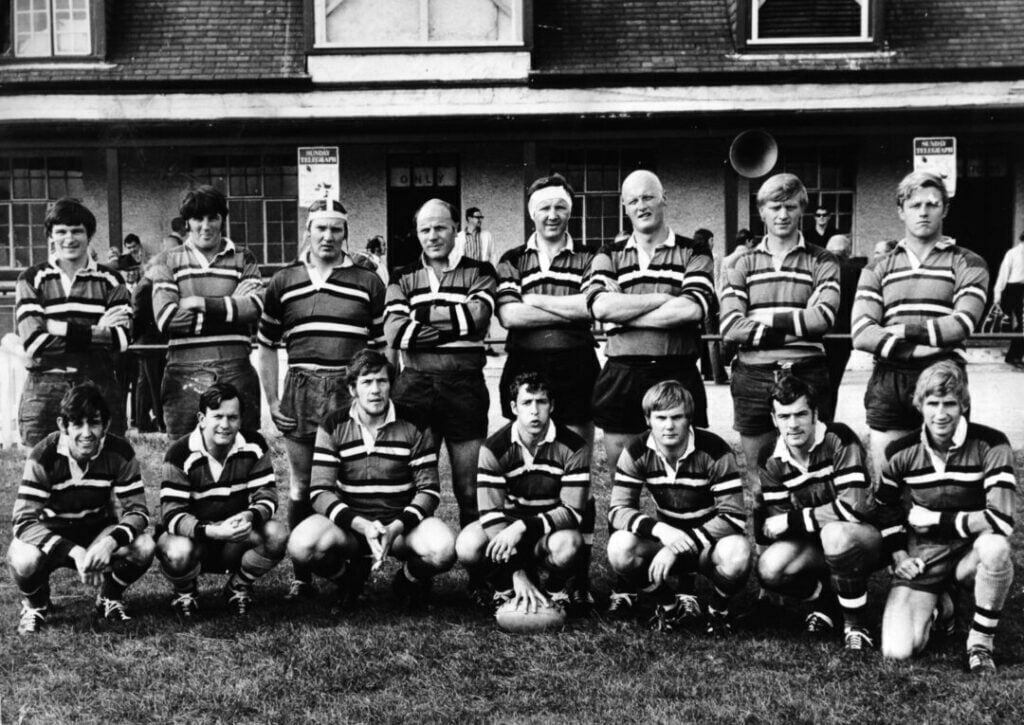
Headingley Football Club was founded in 1878 and was admitted to the Rugby Football and Yorkshire Rugby Football Unions in 1898.
Three years earlier twelve of the county’s largest clubs had left the County RFU to become founder members of the Northern Union, later known as the Rugby League. By 1904-05 only 14 clubs remained with the Yorkshire RFU and it seemed the end was nigh for Rugby Union in the county.
The man saviour was R F Oakes who was elected a member in 1901 beginning a 50 year association with the Club. He played only briefly, captaining the Club in 1903-4, David Jennings 10 but his major contribution was in administration. Elected Secretary of Yorkshire, under his auspices the Union was built up to 108 clubs and 57 schools by 1952. Along the way he was President of the County 1922-4, President of the Rugby Football Union 1933-4 and of Headingley FC from 1935 to 1952.
Although the club’s record was modest for a year or two after the Great War, by the thirties Headingley were one of the most successful sides in the country. Its fixture list came to include some of the strongest sides in the game and the quality of players rose accordingly.
In this period Headingley had eight internationals, six of them appearing concurrently and representing all four Home Unions. Rugby was suspended with the outbreak of war but when peace came four teams were soon being fielded in the traditional green, black and white strip.
In the 1958-9 season the club had three County captains, O Grievson (Yorkshire), J W Collard (Durham), and L F Reid (Cumberland), playing regularly in the first team. That too was the year that wing Peter Thompson got the last of his 17 England caps.
In the sixties the club continued its usual contribution to the county game but it was a period that saw the emergence of two exceptional players and the recognition of two exceptional men. On the playing side Ian McGeechan was promoted from the colts to make his first team debut against Waterloo in 1965. He went on to win 27 caps for Scotland, tour South Africa with the British Lions (playing in all four tests) and during his career captained Headingley, Yorkshire, North Eastern Counties, Scotland, Barbarians and the British Lions. If that were not enough he has gone on to become one of the greatest coaches in the modern game.
John Spencer who made his debut with Headingley in 1966 also went on to captain England in four of his 14 games and to tour with Lions in Australia and New Zealand. Like Ian he has gone on to serve the game at club level, returning to his native Wharfedale, and at National level in various administrative roles.
Of the other two great men, one was Air Marshal Sir Augustus Walker who was elected President of the Rugby Football Union 1965-66 and the other was RMA Kingswell who also held that high Office in 1972-73. He was a formidable and enthusiastic man. He was Captain 36-37, served on the Headingley committee for over 40 years and was President in 1968-9.
Headingley continued to field some fine players and in the ‘80s the club won the Yorkshire Cup no less than six times but as the game progressed with Merit Tables and then Leagues it found it harder to attract and hold those top quality players essential to maintain its high position in the English game.
Probably the finest player to emerge in this period was Peter Winterbottom. He went on to play in New Zealand and South Africa and with Harlequins who he captained. By the time he retired in 1993 he had earned 58 England caps and toured both New Zealand and Australia with the British Lions. His father, John Winterbottom, exemplified all that was best in the Headingley tradition of dedicated service. Joining in 1950, he became Chairman, President in the Centenary Year in 1978 and was involved in the creation of the new Leeds Club after the merger with Roundhay in 1992.
